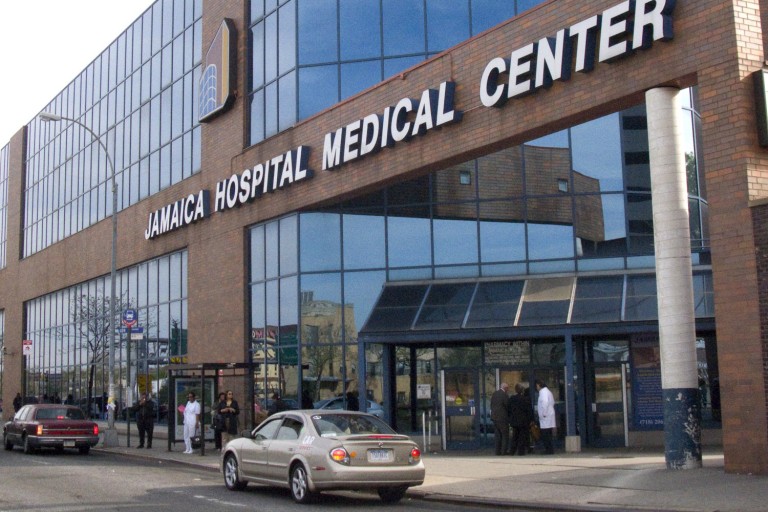PHOTO: Jamaica Hospital Medical Center was recently added to the list of Queens healthcare facilities to join the City’s plan to screen and treat all pregnant women and new mothers for depression by the end of the year. File Photo
By Forum Staff
More women will now have greater access to maternal depression screenings, as 12 more hospitals joined the City’s initiative to screen and treat all pregnant women and new mothers for depression by the end of 2017. At this time, 24 hospitals throughout the five boroughs are participating in the program announced in November 2015 as part of ThriveNYC, the City’s roadmap for meeting a growing need for mental health services.
The additional 12 hospitals now committed to screenings and treating all patients who are pregnant or have a newborn include Flushing Hospital Medical Center, NYU Langone, Jamaica Hospital, and Mount Sinai.
At least one in every ten women suffers from maternal depression and while it is very common to have the “baby blues,” severe changes in mood that last longer than two weeks during or after pregnancy might be a sign of maternal depression. Maternal depression is a serious illness that requires emotional support and adequate treatment. Some symptoms include:
Feeling sad, hopeless, and overwhelmed
- Crying a lot
- Having no energy or motivation
- Sleeping too little or too much
- Trouble focusing, remembering, or making decisions
- Feeling worthless and guilty
- Loss of interest or pleasure in activities
- Withdrawal from friends and family
- Having headaches, chest pains, heart palpitations (the heart beating fast and feeling like it is skipping beats), or hyperventilation (fast and shallow breathing)
- Having thoughts about not wanting to be alive or hurting yourself
- Being afraid that something terrible might happen to the baby, or even thoughts that you might do something bad to the baby
- Having trouble feeling connected to the baby the way you want to
“It is natural to focus on the health and well-being of a brand new baby. But we need to ask how the mom is doing, too. Many mothers struggle during and after their pregnancies, but they remain silent because they don’t know help is available and they may fear being labeled a bad mom,” said First Lady Chirlane McCray, who leads the City’s work on mental health and substance misuse. ”Maternal depression is common and treatable. By routinely screening for it, we can make sure mothers and families get the support they need to recover and thrive.”
Women experiencing any of the above symptoms for longer than the initial two weeks after giving birth should talk to their doctor or a mental health professional. For more information on maternal depression and a full list of participating hospitals, visit nyc.gov/health.

